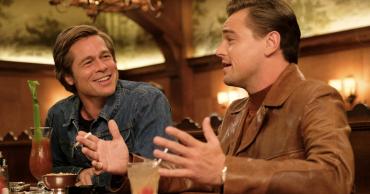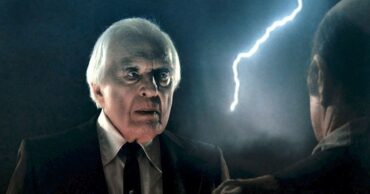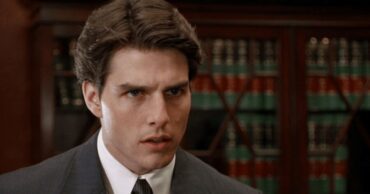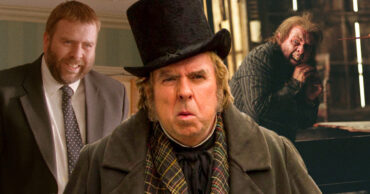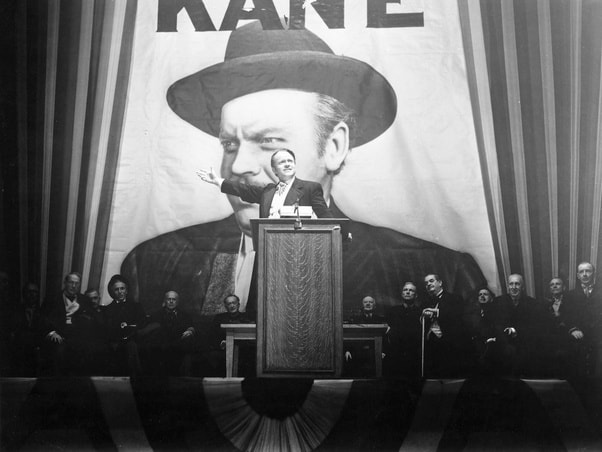
Citizen Kane is deemed the greatest movie of all time. The crazy part about the film is it was the feature debut of Orson Welles, who had no prior film experience. Welles got the chance to make the 1941 classic by somehow tricking the world during a radio broadcast of H.G. Wells’s The War of the Worlds that an alien invasion was taking place in New Jersey. Originally, the radio broadcast caused mass panic; however, when Welles woke up the next morning, he was arguably the most famous man on the planet. He was given a chance to make any film that he wanted, which turned out to be Citizen Kane. The film centers around the dying words of Charles Foster Kane, with a reporter assigned to decipher the controversial tycoon’s statement. The film is highlighted as the best movie of 1941 and was nominated for 9 Academy Awards, including best picture. Surprisingly, it only walked out with the best screenplay award. How Green Was My Valley ended up taking top honors for best picture, which is considered one of the biggest upsets in the history of the Academy Awards. Welles and Citizen Kane was essentially shut out of the Oscars that evening, asking the question; How was one greatest movie ever made virtually ignored at the prestigious event? Let’s dive deeper into Citizen Kane on the possible reasons it failed to win best picture.
Orson Welles Stirred Up Controversy By Making Citizen Kane
Orson Welles was arguably the most powerful man in media during the time of Citizen Kane. Despite his lack of experience in movies, Welles has made waves in the radio and Broadway field. However, it was the making of Citizen Kane that stirred up a bit of controversy for the filmmaker. The new director found himself in hot water as many believed that the film was loosely based on William Randolph Hearst Sr., including the powerful tycoon himself. Hearst was a newspaper publisher and politician who developed the nation’s largest newspaper chain and media company, Heart Communications. The American businessman did everything in his power to destroy Citizen Kane. Given the fact that Hollywood is a political game, Hearst easily had the power to persuade Academy voters to shut out the iconic film. Hearst couldn’t destroy the film, but he definitely crippled Citizen Kane. There were multiple delays and Hearst had known many of the elite in Tinseltown. In fact, Citizen Kane was actually booed any time it was announced during the awards event. It’s clear that Welles made a powerful enemy, even though the director himself stated that it wasn’t based on Hearst. Reportedly, the only reason Orson Welles and Herman J. Mankiewicz won the best screenplay Oscar was due to the Academy wanting to show respect to Mankiewicz. The reasoning behind Citizen Kane’s shutout remains unknown, but you can’t deny that all the pieces of the puzzle fit regarding Hearst trying to destroy the film. Like Welles famously joked, it’s amazing that he was given a chance to even make a second picture. Either way, Citizen Kane is still considered the best movie of all time, while How Green My Valley is only brought up whenever someone recounts the blunders that the Academy voters made.
Citizen Kane Was Likely Not Seen By Most Academy Voters
Usually, box office numbers don’t come into account when it comes to films. However, Citizen Kane was a financial disaster. As previously stated, Hearst did everything to destroy the film, including going out of his way to make sure the film failed to gain any traction. Hearst reportedly blackmailed theaters into not showing the 1941 film. Citizen Kane made less than $2 million at the box office, and RKO Pictures – who released the film – reportedly lost $150,000. Citizen Kane was definitely a hot topic, but for all the wrong reasons. Hearst clearly had an influence on the box office success of the film, thus it’s likely that most of the Academy voters didn’t even see the Orson Welles vehicle. So why was the movie nominated for so many Academy Awards if the voters didn’t see it? Politics. Citizen Kane was a hot commodity and a critical success, and voters likely felt they had to give Kane some nominations in order to not arouse suspicion. It wouldn’t be the first time that a movie was nominated and a good portion of the voters didn’t see it. It was written in the Hollywood Reporter that 10% didn’t see Selma, 5% missed American Sniper, and 7% failed to watch The Theory of Everything; Each film was nominated for best picture. Kane would eventually go on to be etched in film history, but it’s clear that the politics game got the better of the 1941 classic.
Orson Welles
 Follow Us
Follow Us


